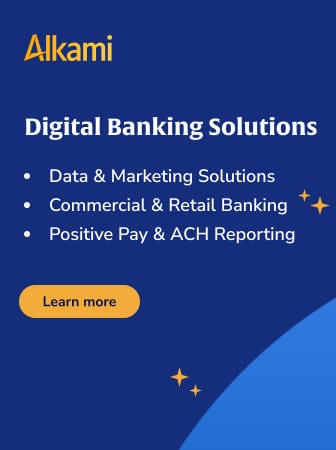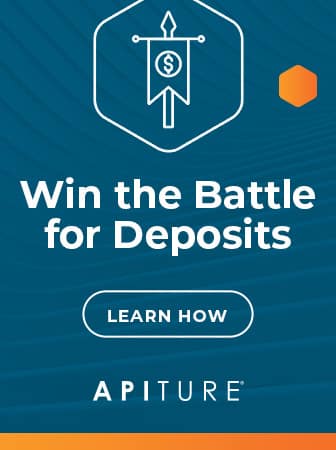When is a secured credit card not just a credit card?
NerdUp — a new entrant in what is a hot category of the card market — is a different creature, from a different part of the financial jungle.
It is the first banking product to come from NerdWallet, which has so far earned its money only by promoting financial products from other companies to the tens of millions of users on its website and app.
It represents an expansion for NerdWallet, not only in terms of its business model, but also beyond its customary prime and super prime marketing targets.
And while NerdUp is a direct competitor of cards meant for subprime consumers, NerdWallet aims to help people move on to mainstream credit cards, thus teeing up more referrals for its partners.
“It’s really a win-win-win that we’re uniquely positioned to offer. Our consumers build that credit, card issuers get access to this pool of qualified candidates, and we’ve got a larger base of engaged users.”
— Tim Chen, NerdWallet CEO
Andrew Davidson, senior vice president and chief insights officer at Comperemedia, a Mintel company, said one potential weakness of the card is the name itself: “Do consumers really want a card called NerdUp?”
But, he added, if it catches on — think of brands like “UGG” boots — “it could really be a great model” for generating new prospects ready to move on to an unsecured card.

Join industry’s leading AI conference - free passes available!
Ai4 is coming to Las Vegas, August 12-14 2024. Join thousands of executives and technology innovators at the epicenter of the AI community.
Read More about Join industry’s leading AI conference - free passes available!

The New AI: A Banker’s Guide to Automation Intelligence
Manual tasks across channels is costly. And while AI is hot, there’s a simpler way to bring efficiency that many bankers have overlooked.
Read More about The New AI: A Banker’s Guide to Automation Intelligence
NerdWallet’s Advantage Over Fintech Startups
The San Francisco company, which went public two years ago, has suddenly gone from being a “pay to play” referral service for financial services companies to becoming one itself — if only on the secured card front for now.
NerdWallet's Ace in the Hole:
Something that sets NerdWallet apart from the typical fintech startup — including several that offer secured credit cards — is that it already has an established user base. The company claims an average of 24 million unique users a month across its financial content, marketplaces and digital tools.
In recent years NerdWallet has been working to convert its website visitors to registered users. As of the end of 2022, the company had 14 million registered users, and management says that number has grown in 2023.
So the NerdUp secured credit card stands to benefit from a huge amount of potential exposure, not only to those shopping for financial products, but to the family and friends they might make referrals to.
Yet offering a card of its own is a significant change for the affiliate marketing company.
“While we do not strive to offer our own financial products, our team felt we could design a unique product by leveraging our existing distribution channels to reduce costs,” Tim Chen, co-founder and chief executive, told analysts in a late October earnings briefing.
Revenue from credit card referrals and related business represents the largest single source of revenue for NerdWallet. In the third quarter, its credit card-related revenue hit $54 million, accounting for 35% of revenue. This was down 6% from the third quarter of 2022, due to credit card issuers’ increased conservatism in underwriting. Chen said that the NerdUp card and other recent moves will “set us up well for the macro recovery.”
Read more: Upgrade Expands Credit Card, Loan Lineup for Wider ‘Mainstream’ Appeal
NerdUp Enters a Hot Credit Card Category
While secured credit cards were once a product that mainstream financial institutions looked at slightly askance, they are now active in this category along with the subprime credit specialists. Credit builder products overall are growing in number, including Chase Freedom Rise, Discover it Secured credit card, Varo Believe, Chime Credit Builder and Current’s Build card.
“It’s an increasingly competitive space,” said Comperemedia’s Davidson.
This growth in secured credit cards has attracted regulatory attention. The Consumer Financial Protection Bureau expressed concern about this trend in a wide-ranging biennial report on credit cards issued in October. “Repayment patterns in credit builder cards may not be as indicative of future likelihood to repay as traditional products,” the report said. “Scoring models may adjust to this difference over time if credit builder cards become more widely used.”
The demand for this type of card is highest with Gen Z. Mintel found in June research that 41% of all consumers — and 59% of Gen Zers — who obtain a new credit card do so to improve their credit scores.
In its 2022 annual report, NerdWallet stressed that its user base skews heavily towards people with high credit scores. The move to offer a secured card suggests that it is trying to expand its base.
Chen, the NerdWallet CEO, confirmed this during the earnings briefing after an analyst asked. “This is just a natural evolution in serving our broader consumer base better,” Chen said. “Helping a group of consumers understand what they qualify for and helping them build credit is a natural extension of our mission and so we are very excited to dive deeper into that.”
Read more about fintech competitors:
- Dave Pays 4% on All Accounts as It Pursues ‘Primary’ Relationships
- Green Dot Plans Big Marketing Push for Direct-to-Consumer GO2bank

NerdWallet’s Move into Banking Is Part of an Emerging Trend
Comperemedia’s Davidson sees NerdWallet’s move as a continuation of a trend. He said other players that support financial services companies also have decided lately to offer banking products themselves.
For example, Credit Karma’s main business is providing referrals to financial services companies for a fee, but now the Intuit subsidiary offers its own Credit Builder card that piggybacks on a spending account, both facilitated by Cross River Bank in Fort Lee, N.J. Credit Karma launched the card in January.
Another example is Experian, one of the major credit reporting companies. Its Smart Money Digital Checking Account, which launched in early October, aims to help consumers improve their credit score. If they use the account to pay for rent, utilities and other qualifying needs, those payments are fed into their credit files. Experian has a banking-as-a-service relationship with Community Federal Savings Bank in Woodhaven, N.Y.
“Credit Karma and Experian broke the ice,” said Davidson.
Caitlin Barber, general manager of cards at NerdWallet, explained in an interview with The Financial Brand that the idea of offering a product of its own rather than strictly making referrals came up because of trends the company observed on its website.
Matching consumers to the right product is a core service NerdWallet provides, Barber said. “We were noticing that a significant portion just weren’t finding the right match or that we weren’t able to give them something we knew they could qualify for,” she said. “We thought it was a great opportunity for us to figure out a product that would be good for these consumers.”
The thinking is that NerdUp customers could graduate to an unsecured card from one of NerdWallet’s financial institution partners in the future, Barber said. When asked if “graduates” might obtain special deals from partners, she said that NerdWallet has worked with partners to arrange such deals in other cases, but that they aren’t part of the NerdUp program at present.
To launch its offering, NerdWallet tapped Bond, a fintech vendor, acquired by FIS in June, that specifically markets its ability to set up companies to offer secured cards. The banking-as-a-service provider in its case is the $1.5 billion-asset Evolve Bank & Trust in Memphis, Tenn.
Here’s what the NerdUp secured credit card offers:
• No hard credit check. In fact, NerdWallet says nearly all U.S. adults can qualify.
• No annual or monthly fees, which the company says is a rare feature for a card that doesn’t require a hard credit check.
• A lower minimum balance. Only $100 is required, versus the industry’s typical minimum balance of $200 to $300 for a secured card.
• A special cashback plan. Cardholders get 1% cash back on purchases, which goes into the deposit account.
• 0% interest, as balances must be paid off each month. If a balance is not paid by the due date, the amount due is taken from the NerdUp deposit. In some cases a $5 fee may be charged.
• Credit score information is provided free to users of the NerdWallet dashboard.
Read more about consumer credit trends:
- BNPL’s Dark Side: Younger Consumers Face Credit Trouble Ahead
- TD Bank’s No-Interest Credit Card: Niche Product or Trendsetter?

Marketing the NerdUp Card to NerdWallet’s Users
NerdWallet’s website features product listings from partners who pay a fee for exposure. The credit card category has several subcategories, one of which is secured cards and another covers credit builder cards. In late October, the “Building Credit” category had four cards listed: Chime Secured Credit Builder Visa Credit Card, Self Visa Secured Card, Mission Lane Visa Credit Card and Capital One Quicksilver Secured Cash Rewards Credit Card.
Elsewhere on the page, in a section highlighting “bests” across the site, the Discover it Secured credit card is named the best of the credit builder category. A longer list of cards appears on the secured cards page. That page also features a box, way down on the page, mentioning NerdUp. (From the box: “To avoid conflicts, NerdWallet’s editorial team will not review this card, assign it a star rating or consider it for our roundups of the best credit cards…”)
“We’re not trying to be competitive with our partners,” Barber said, “and it’s not going to run in comparison with the cards that are on our site.”
NerdUp will be presented as an recommended option on the website only when a user is clearly not going to qualify for any of the other choices available, Barber said. The company refers to this as a “decline path,” where the consumer is going to be declined for a card otherwise.
The level of overt promotion for NerdUp will be low, she said.
NerdWallet could move into other financial products. Though Chen shared no immediate plans to do so, he told analysts that NerdUp would be a model “as we think forward about other products.” The company anticipates that its main source of revenue from NerdUp will be through the eventual referrals it will be able to make to issuers of traditional credit cards, he said.
Read about one Gen Zer’s experience trying to build credit:








